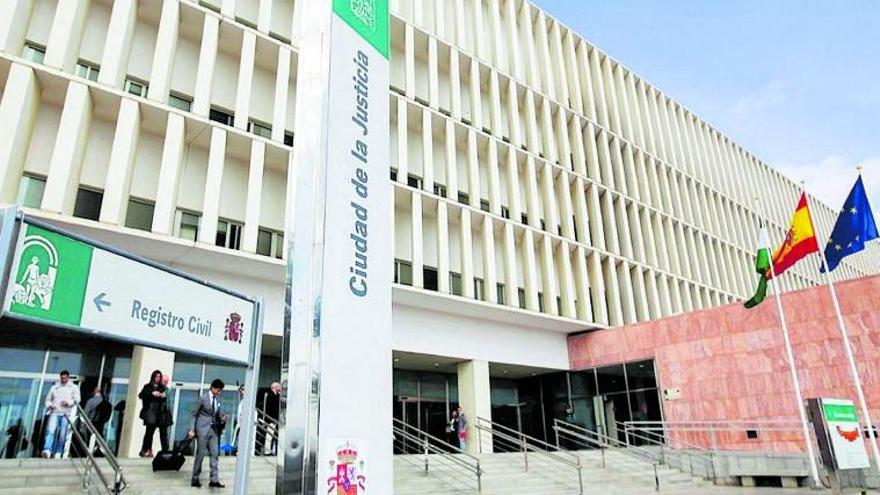Sports Bettor in Spain Accused of Credit Card Fraud Walks Free as Case Falls Apart
Posted on: October 26, 2022, 12:08h.
Last updated on: October 26, 2022, 01:41h.
A Spanish court judge has dealt a blow to prosecutors. They sought to lock away a man they claimed committed credit card fraud to fuel his sports betting activity. But the judge let him go free.

The Public Prosecutor’s Office requested more than eight years in prison for the unidentified individual, who allegedly led a criminal organization dedicated to forging credit cards. The group scammed its way to over €50,000 (US$50,310), prosecutors claimed, spending it at sportsbooks along Spain’s southern coast.
However, the evidence provided by the National Police wasn’t enough for the Provincial Court of Malaga. It acquitted the ringleader of all charges due to a lack of concrete evidence.
Credit Cards and Cigarettes
An investigation by the National Police determined that false credit cards were used in 178 operations. They took place between May 24 and June 7, 2011, in seven betting establishments in and around the city of Marbella.
On June 8, 2011, police arrested the main defendant in Granada, according to the prosecutors in the case. This claim would prove later to be a fatal mistake. The police also took into evidence €2,315 (US$2,329), two mobile phones, and 22 cards they said were used for the fraud. The cards allegedly were hidden in a pack of cigarettes.
Police later arrested two other members of the gang. They also seized €7,000 (US$7,043), two mobile phones, and more credit cards. All three men had criminal records before their arrests.
In addition to the prison sentence, the defendant was looking at a fine of €7,300 (US$7,345) and civil liability to two banking entities. That would have tacked on another €50K to the amount the defendant would have to pay.
Citibank USA claimed more than €25,000 (US$25,155) in losses, and ServiRed wanted just slightly under that amount. ServiRed provides ATM machines, and it claimed the losses were the result of damage to the machines from the use of fraudulent cards.
Strong Defense Takes Down Prosecutors
The case finally made its way to court this month as the ringleader stood trial. He faced charges of falsifying a commercial document, theft, and involvement in organized crime. But the case hit a dead end.
The man denied the facts and stated that he did not know the other people involved in the activity. He said that on the dates of the alleged transactions at the sportsbooks, he wasn’t even in Spain. Instead, he was in his home country of Romania for the birth of his daughter.
He admitted that he was in Spain in 2010, but that in 2011, he worked for a trucking company in Romania. He claimed he didn’t return to Spain until 2016.
As the trial progressed, the investigator who worked the case for the National Police made a startling revelation. He clarified that the police didn’t arrest the defendant in Granada in June 2011. Instead, they arrested him eight months later at the Barcelona airport when his name appeared on a wanted list as he entered the country.
Initially, there appeared to be a link between the use of the cards and the Romanian national’s movements in Spain. However, on the witness stand, the investigator admitted that there was only a loose, tenuous connection with no hard evidence. His testimony left prosecutors with nowhere to turn.
As witnesses – some of whom worked at the sportsbooks – took the stands, they said they didn’t recognize the defendant. One stated confidently that he had never laid eyes on the man.
As a result, the Provincial Court of Malaga ruled against the prosecutors. The judge called them out for the “presumptions” and “suppositions” that led to the arrest, admonishing them for not doing a better job.
Related News Articles
Spain Sports Betting Fraud Ring Sees Five Arrested By Police
Spanish Soccer Match-Fixing Ring Cracked by Interpol
Most Popular
LOST VEGAS: The Foster Brooks Robot at MGM Grand
Bally’s Sets Date for Tropicana Las Vegas Implosion & Party
Most Commented
-
VEGAS MYTHS RE-BUSTED: You Don’t Have to Pay Resort Fees
— August 2, 2024 — 16 Comments -
VEGAS MYTHS RE-BUSTED: Elvis Was a Straight-Up Racist
— August 9, 2024 — 11 Comments -
ANTI-SOCIAL BEHAVIOR: Vegas Casino Buffet Stunt in Poor Taste Goes Viral
— August 16, 2024 — 7 Comments -
VEGAS MYTHS RE-BUSTED: The Strip Tried Appealing to Families and Failed
— August 23, 2024 — 7 Comments
















No comments yet